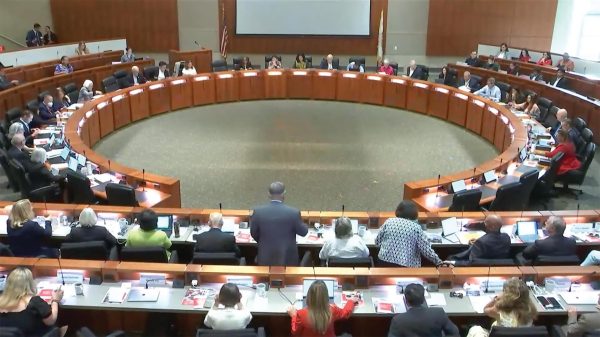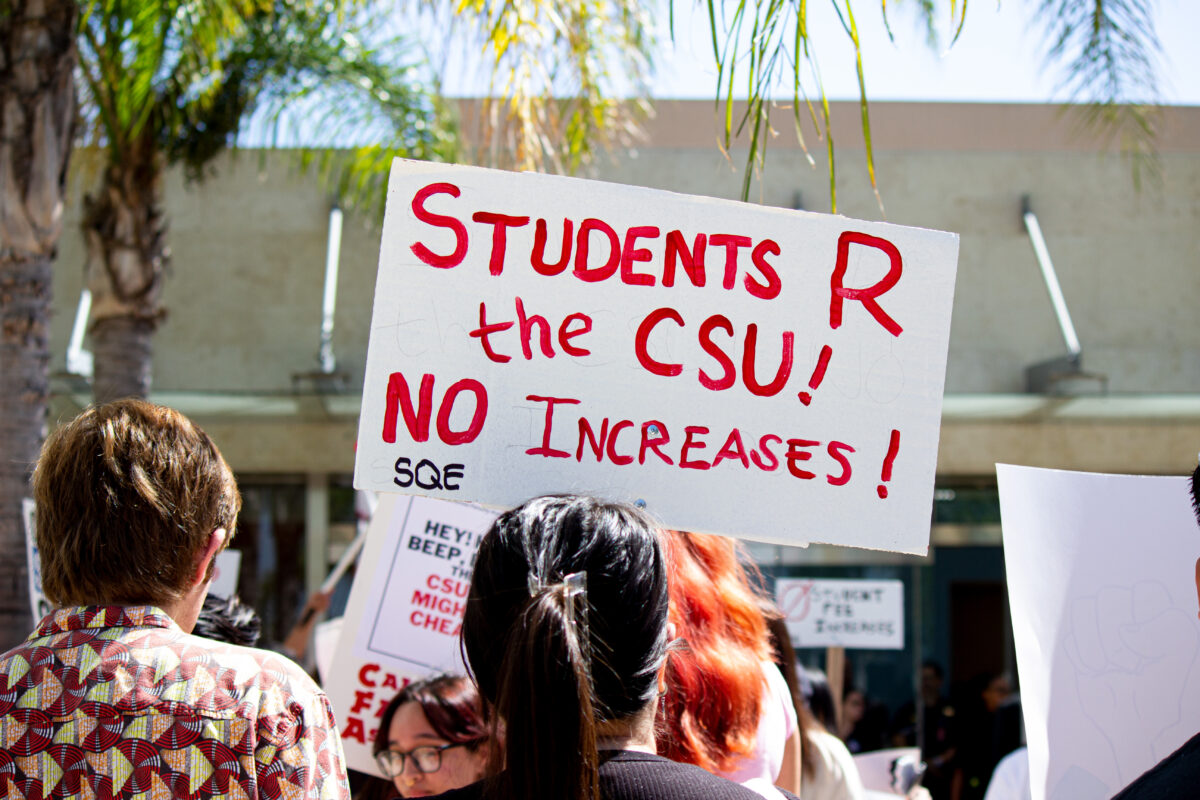The California State University Board of Trustees unanimously approved a tuition increase proposal on Sept. 13, 2023.
Students are against the proposal because it would make higher education harder to obtain. The increase in tuition will affect nearly 460,000 students attending CSU’s 23 campuses, according to the Committee on Finance.
The CSU system is currently in a $1.5 billion deficit, for which the CSU Board of Trustees was recommended various solutions to help resolve. The campuses cannot afford to operate and properly serve students in their current financial state, according to the Sustainable Model Workgroup.
“If we do not do this, we’ll go through reserves and start cutting jobs and faculty and staff, cutting courses and diminishing the opportunity we have created,” said trustee Jack McGrory.
If the CSU system continued with an underfunded budget, it would also need to cut funding from programs, reduce student services, and freeze employment wages and building projects.

Tuition has remained flat and has only increased once in the last 12 years, according to the Sustainable Model Workgroup.
Steven Relyea, CSU executive vice chancellor and chief financial officer, presented the tuition increase proposal.
The accepted proposal suggested increasing tuition annually by 6%, starting fall 2024. The proposal projected that an estimated $148 million will be generated by the 2024-25 academic year and $49 million will be allocated to the State University Grant program, which provides financial aid support for students.
The proposal also projected $860 million will be generated over five years and $280 million will go to the State University Grant program.
The CSU budget prioritizes student success and faculty and staff conditions, according to the proposal. The importance of the accessibility of financial aid and the modernization of campuses was stressed in the operating budget plan.
In the meeting, the CSU Board of Trustees elaborated on how tuition will increase over the next five years. Tuition will increase annually at a steady rate for all students from 2024-25 to 2028-29. At the end of the academic year of 2028-29, tuition rates will stop rising at $7,682 until the Board of Trustees takes another action.
“We know that’s going to negatively impact 100% of our students and, in fact, damage most severely our more vulnerable students, so I want to say that,” said trustee Lillian Kimbell. “I am going to vote for this tuition hike and I understand it’s going to hurt a substantial amount of students.”
Students’ point of view

Outside of the meeting, hundreds of students from different campuses were joined by the California Faculty Association chanting to be let inside. Students from the California State Student Association arrived in Long Beach for the CSU Board of Trustees meeting to speak out during the public comment section.
Several members of CSUN’s Associated Students expressed their disapproval of the tuition increase to the CSU Board of Trustees. The president of CSUN Associated Students, Paige Hajiloo, voiced her opposition.
“Higher education is a pathway to social mobility and increasing tuition limits access to this essential opportunity,” said Hajiloo. “Raising tuition increases burdens students with substantial debt, discouraging them from pursuing degrees or focusing them to take an overwhelming financial obligation.”
Another CSUN student perspective at the meeting was from Joshua Gallardo with Students for Quality Education.
“It is not our job to fill the budget gaps that you cause because of your mismanagement,” said Gallardo.
Some students expressed skepticism of the CSU budget’s application due to salary increases. Since 2020, several campus presidents and chancellors have received salary increases of almost 30%. The highest-paid president is that of California State University, San Diego, with a $533,148 annual salary, and the lowest-paid president is that of the California State University Maritime Academy, with a $349,746 annual salary.
Students’ issues with financial issues

Nearly 60% of all enrolled undergraduates have the full cost of tuition covered by grants, scholarships or waivers, according to the Institutional Financial Aid Programs Report. However, 38% of students graduate with an average debt of $17,479.
During 2021-22, 38% percent of CSU bachelor’s degree recipients took out loans to help pay for college, according to an analysis of CSU bachelor’s degree recipients by the Cal State Student Association and the Institute for College Access and Success. The students who took out loans garnered an average debt of $15,200 to $24,000.
In terms of demographics, Black bachelor’s degree recipients are the most likely to incur debt, according to the analysis.
To cover the cost of college and other living expenses, low-income students need to work at least 20 hours a week, but working more than 15 hours a week can hinder academic ability by depleting energy to focus, according to the analysis.
The goal of the tuition increase is to bring stability to the system’s budget and help pay for academic and financial services, but it has been ridiculed by students and associations across the campuses. As tuition rises, some students feel unsure about their academic futures.
“You’re acting in complete disregard to the struggling students that you should be serving,” said Gallardo.



